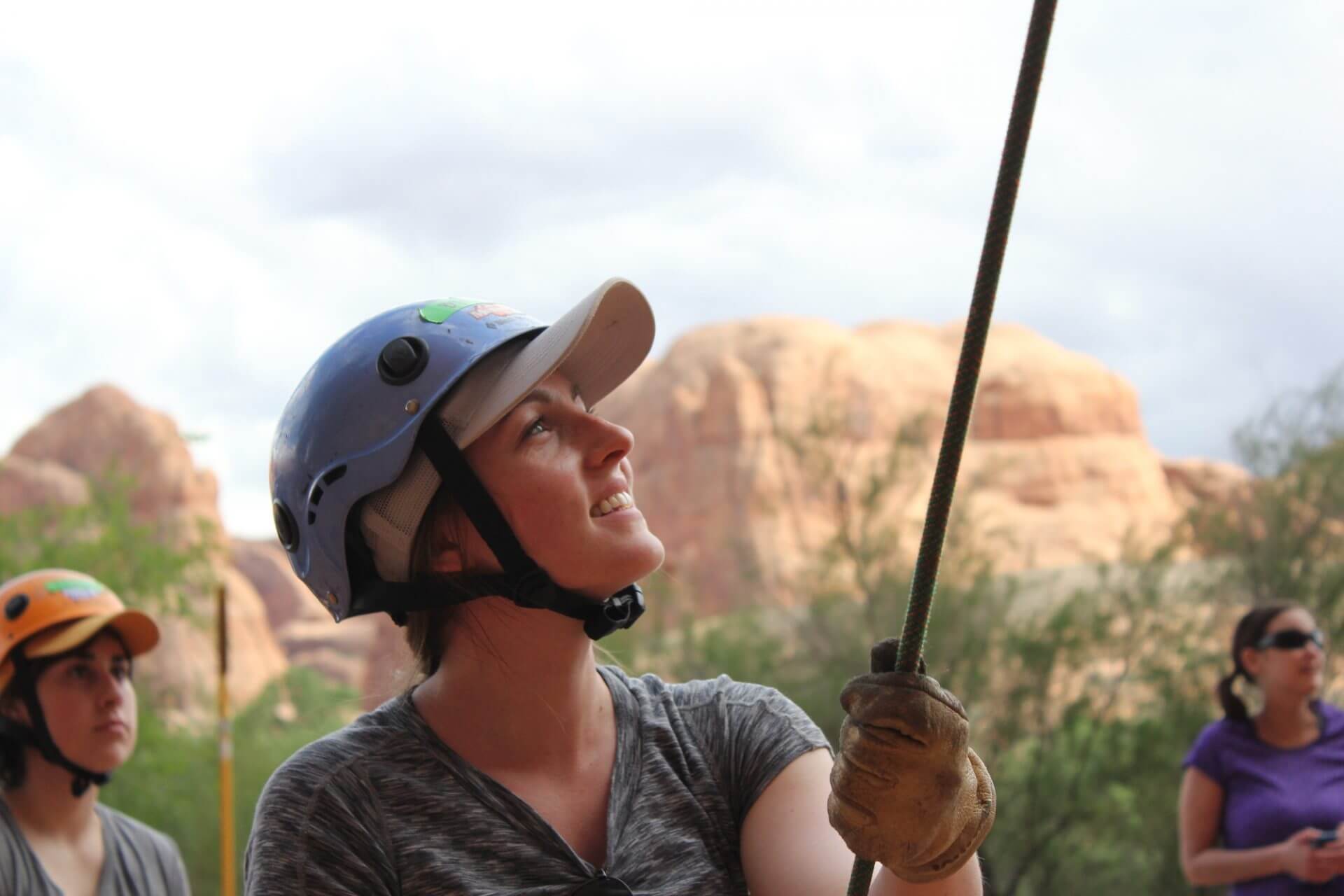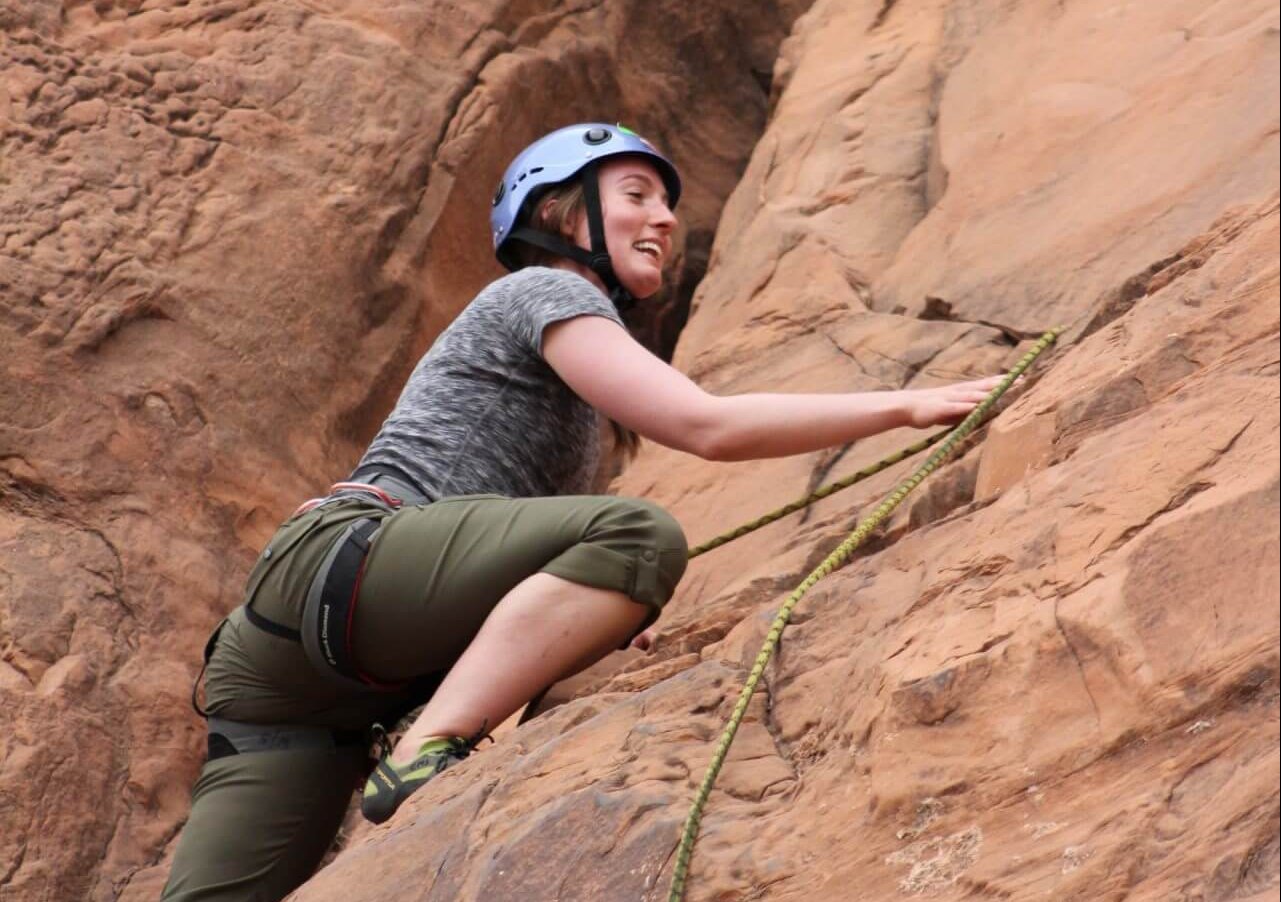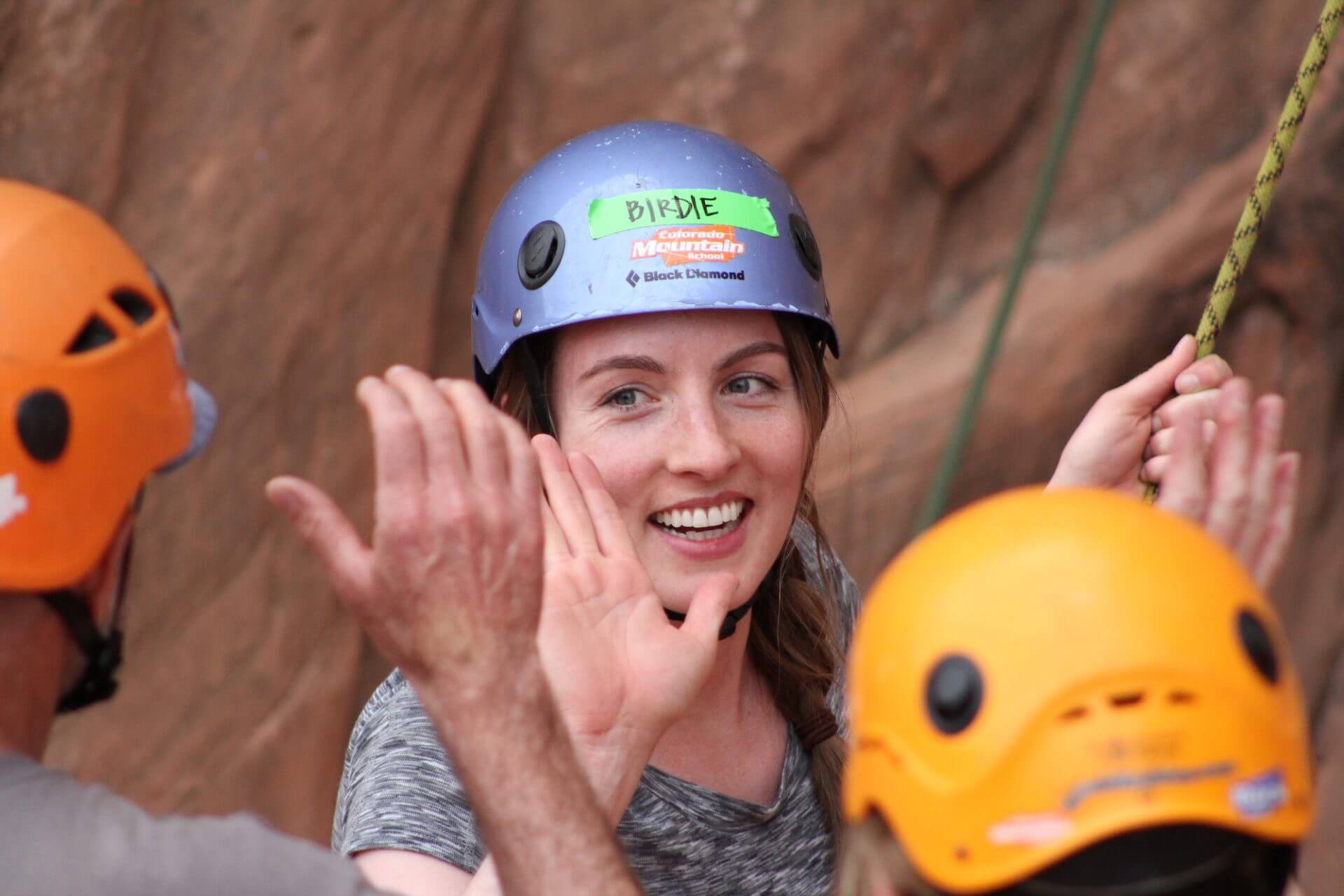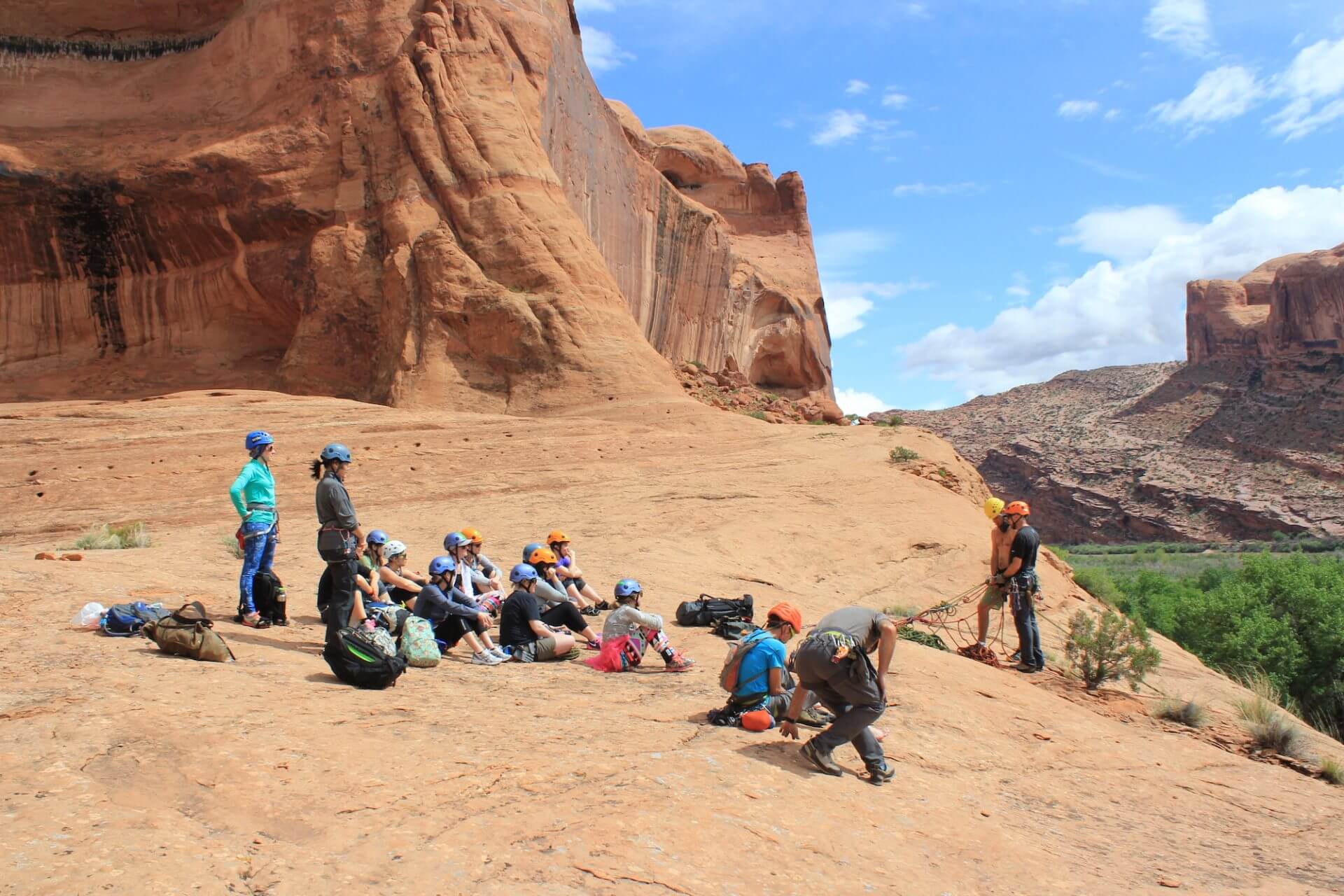Phone: 303.945.2490 Fax: 866.592.6911 Email: [email protected]
621 Kalamath St. Ste 175, Denver, CO 80204
JOIN US FOR A 2024 HEALING ADVENTURE!
At 16, I was diagnosed with an aggressive form of leukemia. After finishing grueling in-patient treatment, the first place I wanted to go was the mountains. I’d spent nearly three months in a sealed, filtered hospital room, with a view of two saplings under a highway overpass. I was desperate to be outside, to be reminded of what it felt like to be alive.
Before my diagnosis, I’d spent summers in California’s Sierra Nevada mountains, swimming in alpine lakes, scrambling up mountain passes, and inhaling pine needle scented breezes. The outdoors had always been important to me, but never more than they were after my cancer diagnosis. As anyone who has completed a First Descents trip will know, spending time in the outdoors can be incredibly healing. I’ve often said that while chemotherapy might have cured my body, the mountains brought me back to life. That first summer after treatment is one I will never forget. Although I was bald and in the worst physical shape of my life, I was profoundly grateful every day to be alive and in the wilderness. Surrounded by mountains that had been there long before me, and would remain long after I was gone, helped me get perspective on my own suffering.



I completed treatment in 2004 and had my final clear scan the same month I graduated from college, in 2007. But as most cancer survivors know, life after cancer never returns to “normal.” Instead, you have a new life, a new way of seeing the world, and in small ways, you are always recalibrating cancer’s role in it. When I went on my First Descents trip five years ago, I was surprised by how many unprocessed emotions the experience brought up for me.
COVID-19 has had some strange parallels with my experience with cancer. An invisible, pervasive illness has arrived and upended our lives. I know others in the FD family have shared that the pandemic has roused old anxieties, as it has for me, especially fears about death or illness. So much feels uncertain, and I’ve again been turning to the outdoors to ground me and keep me calm.

With record visitation to parks and public lands, it’s clear that the outdoors have been important to many people in this uncertain time. Time in the outdoors offers benefits for our physical and mental health, makes us feel grounded, and is something to do when many of our routine activities aren’t available. It’s also clear that many people feel anxious about their safety outdoors – whether because of the color of their skin, where they live, their physical ability, or a fear of getting exposed to COVID.
Through my work at Outdoor Alliance, I’ve also been able to work on a campaign that’s reached nearly 200 million people, encouraging them to Recreate Responsibly. The campaign provides seven guidelines for people getting outside, to keep themselves and others safe, including the most important principle to build an inclusive outdoors, where everyone feels welcome. As more people discover (or rediscover) the magic of being outside, I hope we will also build a new generation of people who want to inclusively steward and care for these special places.